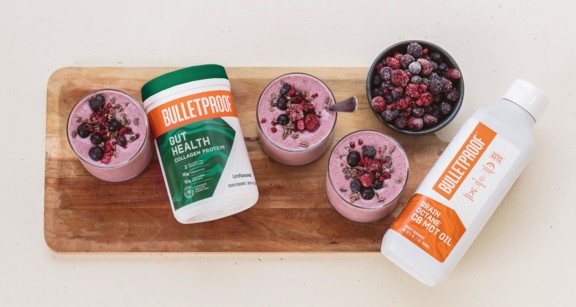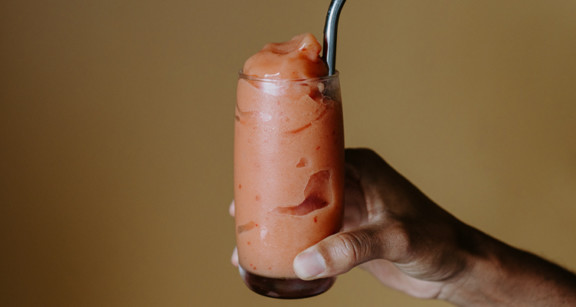Zinc
What is zinc? Are zinc supplements necessary?
Zinc can help support your immune system. It can also reduce stress and enhance the proper functioning of cells. It can even play a part in helping you optimize your physical performance.
You want to make sure you are getting enough zinc. We consider it one of the best supplements you can add to your wellness stack.
Read on to learn what zinc is. We’ll discuss zinc’s benefits and how to eat more foods high in zinc. We’ll also review science-based evidence on how zinc supports your well-being.
What Is Zinc?
Zinc is an essential mineral. This means your body can’t make it. You must get it from outside sources like food or supplements.
It’s part of many chemical reactions, immune function and DNA synthesis. And that’s not all. Zinc also plays a crucial role in the growth and development of cells, tissues and organs. It’s fundamental in supporting your health.
Your body stores zinc in your muscles and bones. It also stores zinc in tissues like the liver and kidneys.[1] Your body doesn’t have a specialized storage system for zinc like it does for some other minerals. Instead, your body stores zinc in cells and tissues. Then, it releases zinc into the bloodstream as needed. This is dynamic regulation. It means your body uses what it needs, when it needs it.
Zinc Benefits
Zinc is not necessarily a mineral you think about every day, but it’s hard at work behind the scenes. Here are just a few of zinc’s benefits:
Immune Support
Zinc enhances the function of immune cells that help identify and destroy germs.[2] Zinc also regulates the production of antibodies and chemical messengers. These are essential for mounting an effective immune response when you’re not well.
Skin Health
Zinc regulates sebum production.[3] This is key for hydrated and balanced skin. Plus, it may help ease skin conditions like acne and eczema. This is due to its anti-inflammatory properties.
Cognitive Function
Zinc supports neurotransmitter function in the brain.[4] This is essential for learning, memory and cognitive performance. Additionally, zinc plays a role in synaptic plasticity. This is the process by which neural connections are formed and strengthened.
Antioxidant
Zinc is not an antioxidant. However, it acts as one by neutralizing harmful free radicals that can damage cells and contribute to aging and health conditions. Zinc helps protect cells from oxidative stress. This reduces the risk of damaged cells for a longer, healthier life.[5]
The Science-Backed Benefits of Zinc
The following research on zinc highlights many ways the mineral contributes to your health:
Zinc supplements could help prevent and treat migraine attacks.[6] Researchers investigated the impact of zinc in a randomized clinical trial of 80 patients. The study lasted eight weeks. Participants who received zinc sulfate had less-severe headaches and fewer migraines. This was versus those who received a placebo.
Another study explored the impact of 12 weeks of zinc supplementation on cognitive function.[7] In this trial, overweight or obese women took 30 milligrams of zinc per day. The results showed higher cognitive scores on various tests in the zinc group compared to placebo. This suggests that zinc may have a positive effect on cognitive function in certain individuals.
Finally, zinc lactate is a chemical compound of zinc and lactic acid. It may help improve oral hygiene.[8] Patients with gum inflammation used a mouthwash containing an amine, zinc lactate and fluoride system for six months. The results showed improved gum health. This was compared to a negative control. Zinc lactate could play an important role in oral care products.
The Bulletproof Approach to Zinc
We want you to build out a personalized wellness plan according to your needs. That means identifying where your nutrition falls short, and where you may need help to fill the gap. It can also mean wanting to unlock optimal mental and physical performance. It’s up to you to decide what kind of wellness journey makes sense for your lifestyle.
To get your daily dose of zinc, incorporate foods high in it into your daily meal plan. To align with the Bulletproof diet, go for grass-fed beef, dark chocolate, oysters and pumpkin seeds.
Spotlight on Zinc
We consider zinc a top supplement for your wellness stack because of its many essential functions. That’s why we’ve developed some of the best zinc supplements.
If you want extra support, a zinc supplement can be an easy and convenient way to go. Our Zinc with Copper supplement provides a bioavailable form of zinc. It also offers copper for balanced absorption. We’ve formulated this exclusive blend for immune support. Other benefits include mood regulation, energy production and cell formation. These micronutrients work together to support antioxidant activity, health and vitality.
Another option is our delicious Immune Gummies. These gummies combine the benefits of vitamin C with 11 milligrams of zinc, elderberry and echinacea to support your immunity. You’ll love the sugar-free raspberry elderberry flavor.
And finally, you can get 155% of your daily zinc intake with Gut Health Collagen Protein powder. Mix it into hot or cold drinks for effective digestive support. This powder contains a blend of prebiotics, probiotics and grass-fed collagen protein.
The quality and safety of our products is always top-of-mind. We carefully select our ingredients and hold them to the highest standards. Our commitment to excellence extends to our supplement testing process. There, we use proven methods and collaborate with accredited third-party labs.
Our Supplement Testing Standards
We conduct rigorous testing on all our products. We confirm that our supplements meet FDA regulations. We also check that they adhere to standards for purity, strength and composition. Through four layers of quality testing, we ensure that they are accurately labeled, effective and safe.
Our dedication to quality doesn’t stop there. We also have an internal ingredient risk assessment process. This is overseen by our team of food safety experts. We are committed to quality, transparency and efficacy. We strive to provide you with the highest quality supplements you can trust.
Recipes for Zinc
Explore some of our favorite recipes featuring foods high in zinc. Choose from snacks, desserts, beverages and breakfast options.
Learn More About Zinc
FAQs
Acne management is not a one-size-fits-all solution. Zinc may help treat acne because of its anti-inflammatory and immune-regulating properties.[9] However, scientific evidence is mixed. Some studies suggest that zinc supplements may reduce acne severity and frequency of outbreaks. This is especially for people with zinc deficiency[10] or specific types of acne. Zinc manages sebum production, reduces inflammation and inhibits the growth of acne-causing bacteria. However, results can vary. Consult with your dermatologist to see if zinc supplements make sense for your lifestyle and skin condition.
Zinc contributes to skin health because it is involved in various cellular processes essential for tissue repair.[11] Zinc supplementation may enhance wound healing. It does this by promoting cell proliferation, collagen synthesis and immune function. Additionally, zinc is involved in the regulation of inflammatory responses.[12] This can help control infection and reduce inflammation at the wound site. Keep in mind that not all wounds react the same to zinc, though. Individual results may vary.
Zinc deficiency is rare in developed countries. However, it can occur in at-risk populations. These include people with unhealthy diets, malabsorption disorders or chronic health conditions.[13] Certain people may be at higher risk of zinc deficiency. These include pregnant women, infants, elderly individuals and vegetarians. This is because of increased zinc requirements or limited dietary sources. Zinc deficiency symptoms can include impaired immune function and delayed wound healing. They also can include hair loss, skin rashes, gut issues, loss of appetite and decreased sense of taste and smell.[14][15]
Foods high in zinc that also align with the Bulletproof diet include grass-fed beef and oysters. Other zinc-rich, Bulletproof diet-friendly foods include pumpkin seeds, grass-fed lamb, pasture-raised chicken and turkey, wild-caught salmon, kefir and dark chocolate (in moderation).
Yes, zinc plays an important role in bone health. This is because it contributes to bone metabolism and development.[16] It is involved in the synthesis of collagen. Collagen is a protein essential for bone structure and strength. Plus, zinc helps regulate bone formation.[17] It does this by influencing certain types of cells involved in the process.
Look for a supplement that contains bioavailable forms of zinc. Examples include zinc citrate, zinc picolinate or zinc gluconate. Your body more easily absorbs these types. Focus on
supplements that are third-party tested for potency and purity. Do this to ensure they are free from contaminants. Think about what form of supplements you prefer: capsules, gummies or powder, for example. Finally, consider supplement blends that complement zinc. For example, vitamins C and D or copper can enhance absorption and effectiveness.
Yes, it is possible to take too much zinc. This can lead to adverse effects and toxicity. Zinc is an essential mineral. However, excessive intake can disrupt the balance of other minerals in your body, like copper and iron. This can lead to deficiencies.[18] Symptoms of zinc toxicity may include nausea, vomiting, diarrhea, headaches and abdominal pain.[19] Follow recommended dosage guidelines. Consult a healthcare professional before starting zinc supplements.

